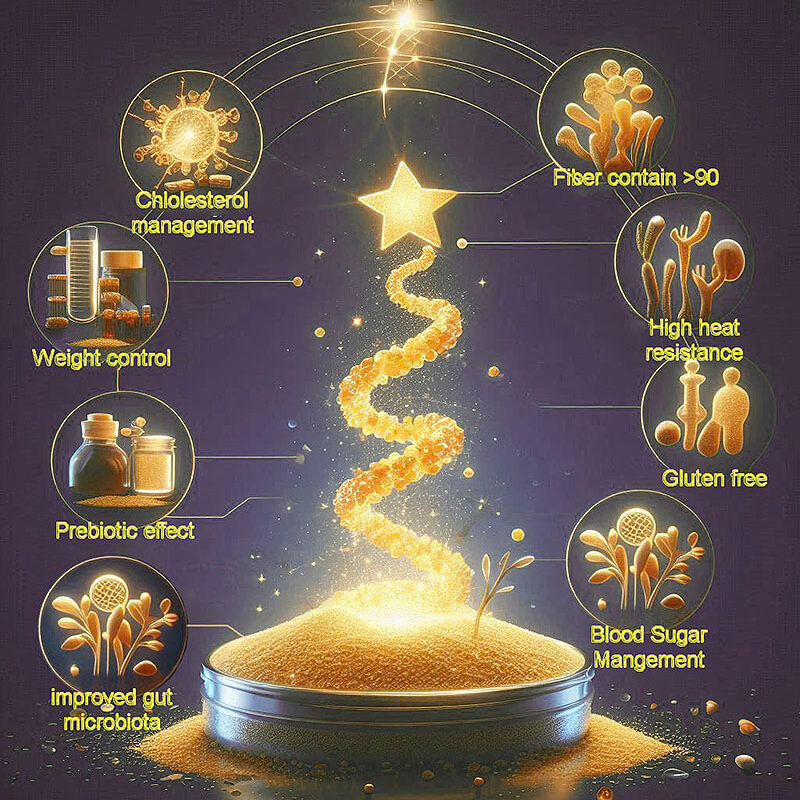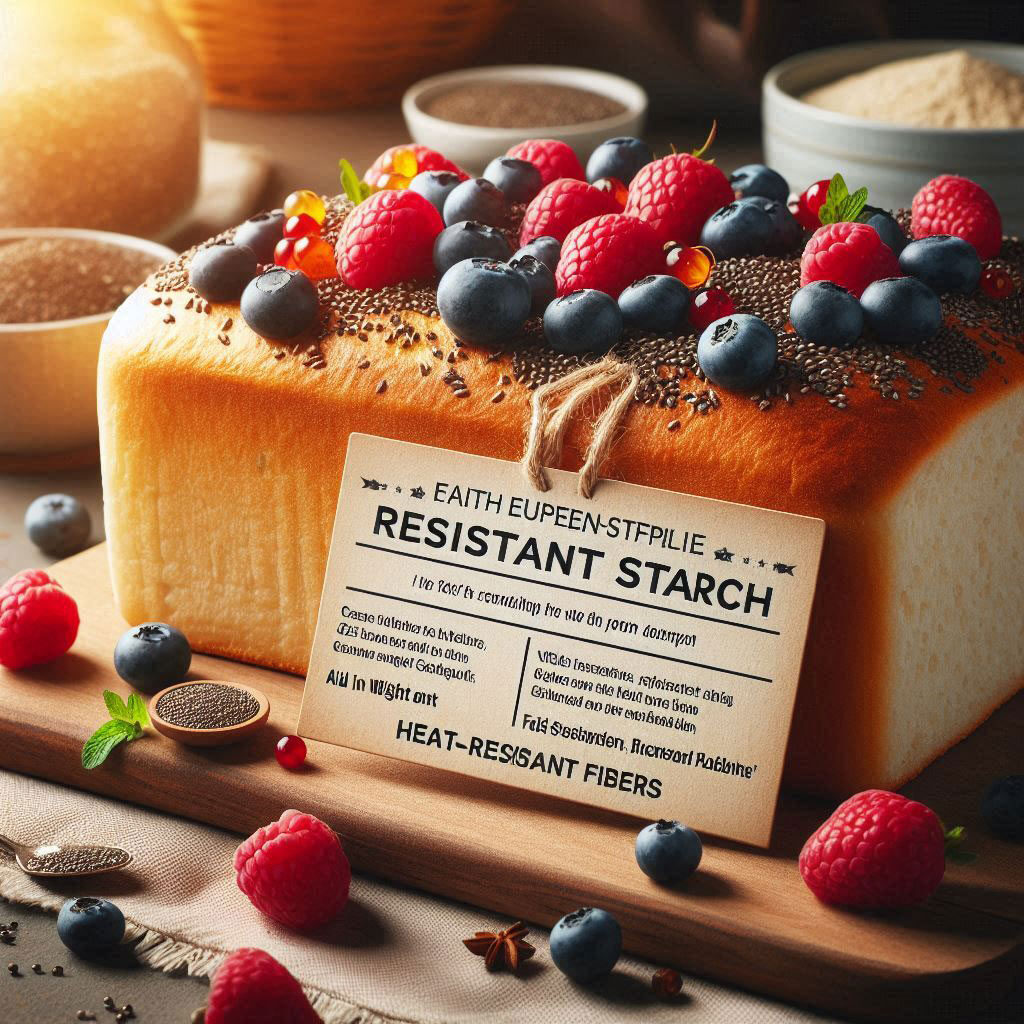
Resistant Starch
Resistant Starch
Resistant Starch __Fiber RT-90
Fiber RT-90 resistant starch (RS4) product, which means it does not metabolize into sugars like other forms of starch due to its high fiber content (minimum 90% fiber). This helps users effectively control their weight and promotes an efficient digestive system.
With the increasing obesity rates worldwide, Fiber RT-90 is considered an effective solution for weight management, helping consumers reduce the burden of limiting carbohydrates in their diet.
Fiber RT-90 can be used in combination with other forms of starch to process food without significantly affecting users’ taste experience.
Fiber RT-90 at the 2023 NutraIngredients-Asia Awards as it met the stringent requirements of customers and the jury is a testament to its research and efforts to improve production technologies.
Featured
Application
Options
Details
Video
- Heat Stability – Fiber RT-90 remains stable under high temperatures, making it suitable for baking, frying, and extrusion processes.
- Low Impact on Texture & Flavor – It can be incorporated into foods without significantly altering taste, color, or mouth feel.
- Prebiotic Effects – Fermented in the colon, promoting beneficial gut bacteria (e.g., Bifidobacteria, Lactobacilli).
- Blood Sugar Control – Low glycemic response, beneficial for diabetics.
- Improved Shelf Life – Enhances moisture retention and reduces staling in baked goods.
- Baked Goods (bread, cookies, crackers – improves fiber content without hardening texture).
- Extruded Snacks (chips, cereals – maintains crispiness).
- Pasta & Noodles (reduces cooking loss, improves firmness).
- Low-Calorie Foods (replaces flour in high-fiber, reduced-calorie products).
- Gluten-Free Products (improves texture and fiber content).
- Pharmaceuticals (used as an excipient in controlled-release tablets).
Materials : Tapioca / Rice Base
Style : Cook up
- Fiber RT-90 is highly heat-resistant, so it does not break down easily during cooking or baking (unlike RS3, which may lose resistance upon reheating).
- Regular dietary fibers (e.g., inulin, some gums) can degrade at high temperatures (>150°C), leading to reduced functionality.
- Processing methods matter:
- Dry heating (baking, frying): Minimal fiber loss in RS4.
- Wet heating (boiling, autoclaving): RS4 remains stable, but some soluble fibers (e.g., beta-glucan, pectin) may leach out.
Starch product series of chemical modified






